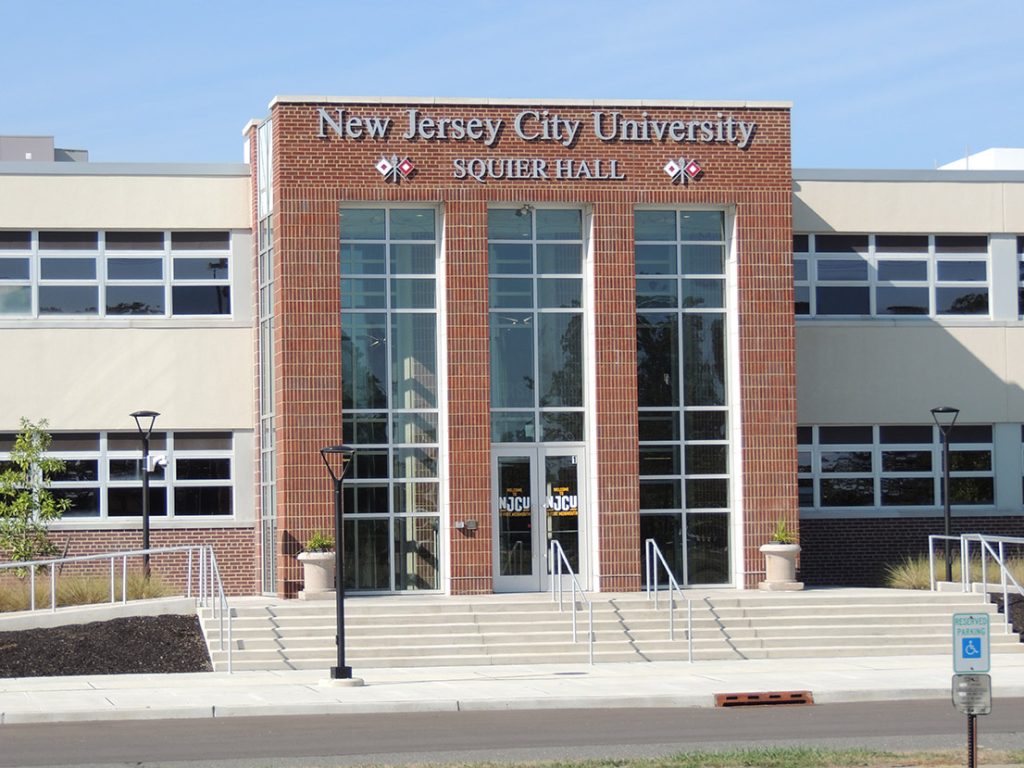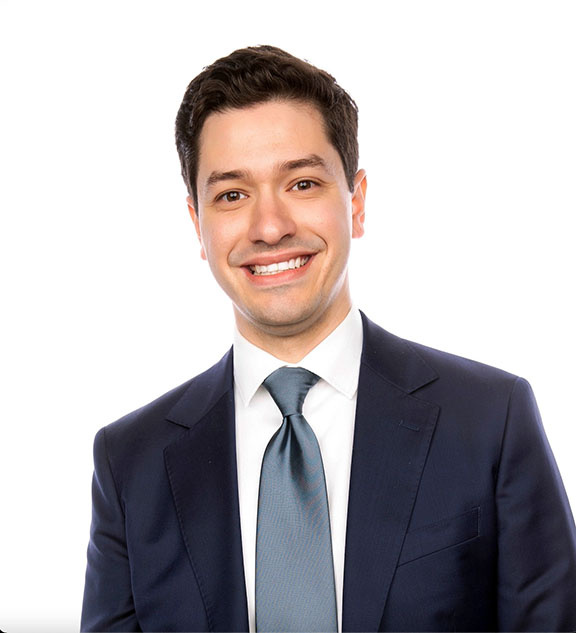
By Laura D.C. Kolnoski
OCEANPORT – Newly named New Jersey City University (NJCU) interim president Andrés “Andy” Acebo said Tuesday the key to the future of its Fort Monmouth campus is increased enrollment and that the school will remain open.
Acebo, 37, a Hudson County native who grew up in Union City, is New Jersey’s youngest public university president according to senior director of university communications Ira Thor. Acebo, whose appointment is for 24 months, previously served as NJCU’s executive vice president and university counsel.
Opened August 2021 in the fort’s extensively renovated Squier Hall, NJCU’s Oceanport campus had about 300 students in its first semester with a prepandemic goal of 750 enrollments. Today, about 200 students are enrolled.
The institution was rocked last June by a “financial emergency” when it was disclosed NJCU had a $20 million deficit. Previous president Sue Henderson resigned, while layoffs and staff reductions commenced immediately. Among the first let go was Michael Edmondson, Ph.D., dean of the Fort Monmouth campus.
In September, The Two River Times reported NJCU’s Board of Trustees were considering vacating the Fort Monmouth campus as part of cost reductions at the 92-year-old institution headquartered in Jersey City. Acebo, who became executive vice president and university counsel amid the announcement of the financial crisis, collaborated with NJCU’s organized labor, stakeholders and constituencies to reduce the deficit by more than 50 percent within 120 days according to a press release.
“After several months of conducting an extensive search for an interim leader to help guide us through the next phase of our fiscal emergency, Andy emerged as the primary candidate,” said Jason Kroll, who has been serving as acting president. “Andy is uniquely qualified… has the support and full confidence of the board and our organized labor units, and an excellent rapport with our legislative stakeholders.”
Acebo also served as secretary to the board of trustees, guiding its government relations initiatives. He said he found “considerable support” from government officials from the local level to NJCU’s state legislative delegation for keeping the Fort Monmouth location open.
“I said yes to serving as interim president because of my deep feeling of conviction and responsibility to give back to a community that has given me so much,” said Acebo, whose wife and mother-in-law both attended NJCU. “NJCU is the oldest minority-serving university in New Jersey. In this country… the promise of education is an equalizing force.” He added he is the son of a Cuban farm boy who fled the island nation by boat.
Acebo has worked with NJCU’s bond rating agencies, resulting in the university’s removal from the negative watch. An “academic rightsizing framework that honors collective bargaining rights and creates a pathway for reallocation of resources and an updated academic portfolio” has been established, the press release continued.
Acebo also worked with the Division of Academic Affairs to affirm NJCU’s Middle States Commission on Higher Education accreditation, and U.S. Sen. Robert Menendez (D-13) to identify future federal aid. School officials have requested accelerated allotments of its state appropriation and have asked the state legislature’s Joint Budget Oversight Committee for at least $35 million in capital expense funding from the American Rescue Plan Act. Additionally, NJCU applied for a $15 million Higher Education Infrastructure Trust grant in October.
“We hope the state will invest in NJCU’s sustainability,” Acebo said. “We’re not saying just give it to us. We are worthy of it. It’s clear American Rescue Plan funds may be used for NJCU’s circumstances. Indisputably, NJCU is a prime candidate for those funds.”
He noted the pandemic had a disproportionate impact on the school, resulting in a 1,300-student decline in enrollment overall.
To increase enrollment in Oceanport, Acebo said NJCU is “cementing relationships” with the community and corporate entities. He is hopeful relationships can be forged with Netflix and RWJ Barnabas Health, firms building large facilities on the redeveloping former U.S. Army base in the coming years.
NJCU’s Oceanport campus offers 16 undergraduate programs, including a state-of-the-art nursing training center and high-tech criminal justice and cyber security programs. Current total undergraduate enrollment at NJCU is approximately 5,500 students, below its target of 8,000 students. About 1,700 graduate students are enrolled.
Acebo, who holds a Bachelor of Arts from Brown University and a Juris Doctor from Rutgers Law School, recently served on the vetting and due diligence team for the Hispanic National Bar Association (HNBA) and Alliance for Latinx Leadership and Policy (ALLP) partnership to identify U.S. Department of Justice presidential nominees for the Biden/Harris transition. In his private practice, he has counseled and represented governmental entities, higher education institutions and public school districts, and corporations. He currently serves as a deputy regional president of the Hispanic National Bar Association and chair of the Special Committee on Cuba, and on the board of the Cuban American Alliance for Leadership and Education (CAALE), a nonprofit that serves first-generation students in the NJCU community.
“We are putting our students first every single day and working with community partners and others to find solutions,” Acebo said, adding, “I am laser focused on the next 24 months.”
In about 18 months, he added, the search for a permanent leader will commence.
The article originally appeared in the January 19 – 25, 2023 print edition of The Two River Times.















